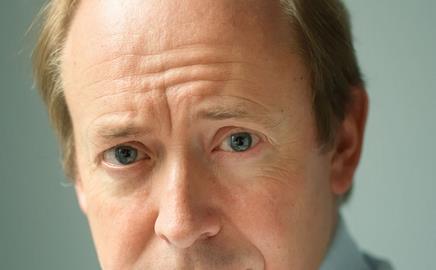Ian Tyler is named Chief Executive of the Year at Tuesday nightŌĆÖs ║┌Č┤╔ńŪ° Awards
Ian Tyler is no show-off. His four-year tenure as chief executive of Balfour Beatty has been marked by spadework rather than screaming headlines.
But even the 47-year-old accountant, winner of ║┌Č┤╔ńŪ°ŌĆÖs Chief Executive of the Year award on Tuesday, couldnŌĆÖt resist blowing his own trumpet when the companyŌĆÖs 2007 figures were announced a month ago. ŌĆ£These are a bloody good set of results,ŌĆØ he declared. Even then, it was the genuine satisfaction of a number-cruncher rather than someone in search of a soundbite.
With turnover growth of ┬Ż5.9bn to ┬Ż7.5bn and pre-tax profit up from ┬Ż125m to ┬Ż197m, few disagreed. Solid, strong and stable were the adjectives of choice in City circles.
The reaction must have been music to his ears. The restless but pragmatic Tyler likes to think of Balfour BeattyŌĆÖs growth trajectory as ŌĆ£thoughtful and steadyŌĆØ. Few would disagree that since he replaced Mike Welton as chief executive on 1 January 2005, it has been just that.
While John McDonough at rival Carillion has wowed the national press with the purchase of Mowlem and Alfred McAlpine for a combined ┬Ż867m, in the past two years Tyler has turned just as many heads in construction circles with the smaller-scale purchases of Mansell, Birse, Cowlin and Dean & Dyball for a total of ┬Ż171m.
But whereas Carillion found with Mowlem that deals can bring nasty surprises, observers have described BalfourŌĆÖs integration process as seamless. Its acquisitions lack the wow factor of CarillionŌĆÖs but somehow they seem to get a good deal.
So how does it do it? As one City watcher noted recently: ŌĆ£Success breeds success and someone like Dean & Dyball would actively want to be part of Balfour once it comes into play.ŌĆØ
During TylerŌĆÖs tenure, staff levels have grown from 28,000 to 35,000 and the order book has surged from ┬Ż6.8bn to more than ┬Ż11bn as the company has moved into PPP markets in Europe, South-east Asia and the US.
Last year culminated in what Tyler described as one of his proudest achievements since stepping up to the chief executiveŌĆÖs chair: the acquisition of US military housing business Centex for ┬Ż184m.
Not that Tyler would ever seek personal credit for anything Balfour has done. After making the Centex observation, he was quick to liken his role as chief executive to the conductor of an orchestra rather than a Branson-esque figurehead.
Either way, cracking the US certainly seems to hold more allure for Tyler than the Middle East. He recently said: ŌĆ£Our model works best in steady and sophisticated markets. The Middle East is a frenetic place, but there are bear traps that we have so far managed to avoid.ŌĆØ
North AmericaŌĆÖs contribution to turnover is set to grow from 25% to 40% in the medium term and Tyler has highlighted Texas and California as two ŌĆ£unimaginably largeŌĆØ markets for their growth potential.
Of course things havenŌĆÖt been trouble-free since Tyler took over the reins, and his headaches have included the demise of tube maintenance consortium Metronet. BalfourŌĆÖs 20% stake led to ┬Ż122m being wiped from its books last year.
Negative headlines are clearly not something that sit well with a down-to-earth accountant. He said of the Metronet debacle: ŌĆ£It was wildly misunderstood. To understand it you have to go back to the origins of PPP and where the risks lie, which would need about two hours. I think it was Einstein who said: ŌĆśEverything should be made as simple as possible, but no simplerŌĆÖ.ŌĆØ
The cryptic remark is as close as Tyler will get to a public war of words that would distract from his day job.
Tyler in numbers
1960 born 7 July, Wells, Somerset.
16 Age Tyler left Ringwood Comprehensive, Hampshire, to join a bank
3 Years he studied commerce at Birmingham university
12 Years Tyler has been at Balfour Beatty. He joined as finance director in 1996, became chief operating officer in 2002
2 Number of daughters
┬Ż793,287 Total pay in 2006





























No comments yet